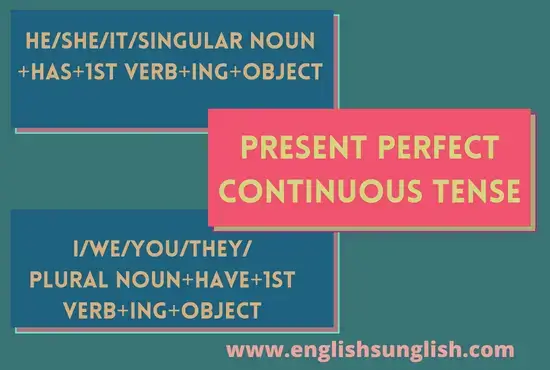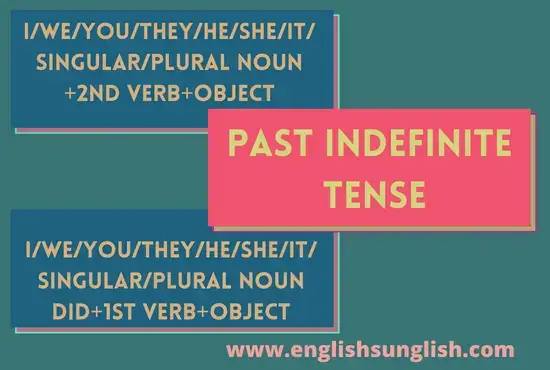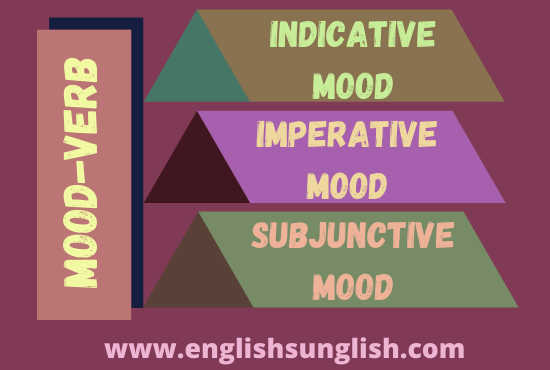Non-Continuous Verbs/ Non-Progressive Verbs
Some special Verbs that never take the continuous form:
The verbs of perception, appearing, emotion, and thinking never take a continuous form.
Verbs of Perception:
When a verb is used to show the physical experience with senses, then this verb is called “Verb of Perception”. A verb of Perception never takes the continuous form. Following are some verbs of perception that never appear in the continuous form.
See:
- I see a parrot.
- I see what he means.
- They’ll see you at dinner.
- I see their point.
- I see beautiful scenery.
Taste:
- These grapes taste sour.
- That food tastes good.
- The wine tastes like vinegar.
- You taste like honey, love.
- His first job gave him a real taste of business.
Hear:
- They hear music as it sounds good.
- It hears as if they are fighting with each other.
- He hears all the tips.
- “I hear,” Henry answered without lifting his eyes.
- I hear that.
Smell:
- I smell gas! It smells bad.
- I smell the gas as I am entering the main room.
- It smells in here.
- They smell danger.
- The drains smell.
Notice:
- She notices the smell of gas.
- Are you noticed that he is getting a new haircut?
- She does not notice his anger.
- I just notice this change.
- No one notices his absence.
Recognize:
- I recognize the molding and cornices.
- I recognize him now, he is Mary’s husband.
- We recognize the necessity for a written agreement.
- He does not know the title but he recognizes the tune.
- No one recognizes her with her sunglasses on.
Verbs of Appearing:
Verbs that are used to indicate the appearing or come to the light action of something, are called “Verbs of Appearing”. Verbs of Appearing also do not take the continuous form. Following are some examples of the Verbs of Appearing.
Appear:
- She appears to be asleep.
- More adjectives appear, including adjectives of color.
- He finally appears in the show from the back curtain.
- This advertisement appears on the front page of the magazine.
- The rainbow appears after the rain.
Look:
- They look healthy.
- It looks like you are not interested in going with us.
- You look a fool in this stupid dressing.
- This color combination looks awesome.
- It looks like you are uncomfortable in these pairs of shoes.
Seem:
- She seems sad.
- He seems excited.
- You seem to know a lot of people.
- His son seems to want everything.
- The mobile phone seems to be broken.
Verbs of emotion:
Want:
- I want this pen.
- He wants to spend more time with his parents.
- She wants to write on social evils.
- They want to know the reason behind his rude behavior.
- She dearly wants that fairy tale book.
Wish:
- I wish I were there to celebrate with you.
- I wish that the whole World were like a paradise!
- I wish I explain it to you.
- They wish they could remember something of that time.
- He wishes he had said something earlier.
Desired:
- This project is not achieving the desired effects.
- He desires to stand always first in the crowd.
- I desire peace, no less than Emperor Alexander.
- I desire to make a beautiful painting full of real imagination.
- We soon believe what we desire.
Feel:
- This piece of cloth feels soft.
- She feels much better now.
- They feel so strange.
- We feel guilt.
- He feels sleepy himself.
Like:
- I like her but I do not like her elder sister.
- He likes to sing all the time.
- I like a long drive along the canal before sleeping.
- His friends like to call him Jerry.
- I am not like his attitude towards his juniors.
Love:
- They love their parents very much.
- I love thinking about you.
- I love the way he treats the needy.
- He loves to play with his young siblings.
- She loves to bake.
Hate:
- I hate his pride in his wealth.
- They hate drawing
- We hate to upset someone with our outstanding achievements.
- He hates to wear glasses despite his weak eyesight.
- I hate you.
Hope:
- They hope we like it.
- I hope to have a luxurious life one day.
- We hope we shall fulfill this project’s requirements.
- She hopes to get a beautiful dress from her mother on her birthday.
- You hope you will get your desired job one day.
Refuse:
- They refuse to talk to terrorists.
- He refuses to bargain over the price.
- We refuse to believe that.
- They refuse to lie about what happened.
- She refuses to think about his proposal.
Prefer:
- I prefer tea to coffee in the morning.
- I prefer to keep it under the radar.
- I prefer to kill this insect that to let it go.
- I prefer to sleep.
- He prefers woolen gloves, but she likes fleece mitts.
Verbs of Thinking:
Verbs that are used to express the thought of a person or character about some event or happening, are called the “Verbs of Thinking”. Usually, Verbs of thinking not to take the continuous form, because having an opinion or thought about something is a lifelong process and one cannot determine the progress of this action. Following are some examples of “Verbs of Thinking”:
Think:
- I think you are wrong.
- I think he is a gentleman.
- I think it is the right time for you to work hard before your final exams.
- They think I need to consider his proposal.
- I think it is time for her to join our team.
Suppose:
- I suppose he is right.
- I suppose his success depends on his hard work.
- I suppose that he wants to give up.
- I do not suppose he is ready to go abroad.
- I suppose they are both a little materialistic.
Believe:
- I believe he is the most industrious boy in his class.
- I believe happiness needs no money and fame.
- Some believe this is a new beginning of his life.
- I believe that is the case with energy.
- I believe it is raining tomorrow.
Agree:
- I agree to his terms.
- Only if they agree to stay for the dinner party.
- I agree he is guilty.
- I agree she cannot capable of doing this job.
- They agree they do have not enough resources to help the poor.
Consider:
- I do not consider it wise to reject that new proposal.
- They consider you as their new manager.
- I consider accepting his terms.
- They consider starting a new business.
- We consider arranging a seminar to aware people of the abuses of child labor.
Trust:
- I trust him for getting a new job.
- I trust you because of your honesty.
- I trust your choice.
- I trust you.
- They both trust each other.
Remember:
- I remember thinking what a brilliant student he is.
- I remember watching the music show on television.
- I remember when wages are too low for this work.
- I remember those happy days of my life.
- I remember I am guilty.
Forget:
- They forget that my whole body is alive to the conditions about me.
- You forget this is the final date of the submission proposal.
- They forget to throw light on growing street crimes.
- They forget to receive their pension.
- He forgets to pick her up.
Know:
- I know you do not like this kind of madness.
- I know they do not want to understand me.
- They know the consequences of rejecting his demands.
- I know you will make it possible.
- We know the hurdles of starting a new business.
Understand:
- She finally understands the conditions.
- They understand the reason for your hard decisions.
- Now they understand why we are laughing so hard.
- I understand you have better capabilities to handle such puzzles of life.
- We understand he is innocent in this situation.
Imagine:
- I imagine it would taste mighty good.
- I imagine because it was sent to you.
- I imagine it is the same with you.
- I imagine how she will react.
- I imagine if there are aliens, they have been discreet for a reason.
Mean:
- I mean you normally do not act like this.
- They mean you should consider this option.
- We mean she is not always wrong.
- I mean he is using his higher position for the wrong means.
- We mean he just left this city.
Mind:
- I do not mind his smoking.
- He is mind his own business.
- Do you mind it?
- Do you mind if I turned off the lights in your room?
- I never mind your interruptions in my work.



